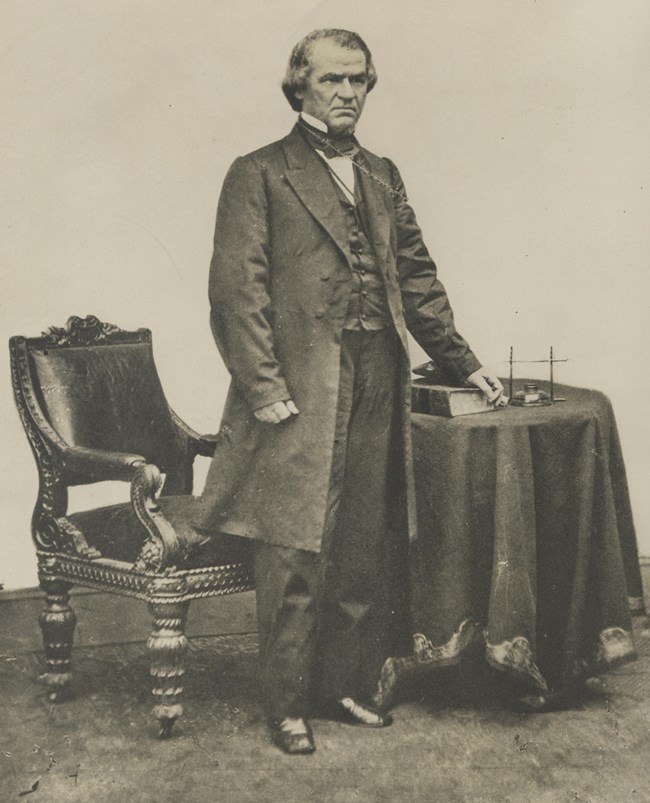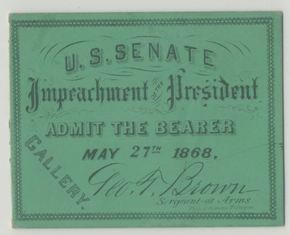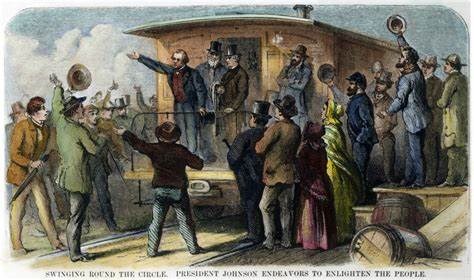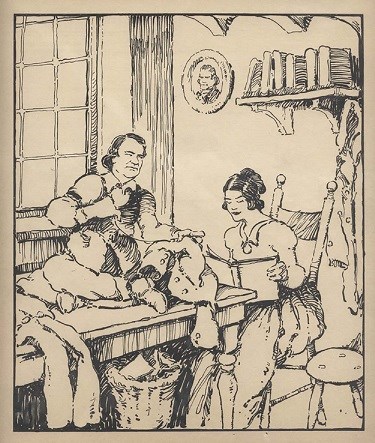TIMELINE
View a timeline of Andrew Johnson's life and political career.
ANDREW JOHNSON AND SLAVERY
Learn more...
ANDREW JOHNSON'S LAST WORDS ON MARY SURRATT
"'The execution of Mrs. Surrat [sic] was a crime of passion without justice or reason..." Andrew Johnson, 1875
Learn more...
RECONSTRUCTION
Andrew Johnson stated "there is no such thing as reconstruction."
Andrew Johnson and Congress were unable to agree on a plan for restoring the ravaged country following the Civil War. There was a marked difference between Congressional Reconstruction and Andrew Johnson's plan for Presidential Restoration. Learn more about the different manifestations of Reconstruction and what Andrew Johnson meant by this statement.
AMENDMENTS TO THE CONSTITUTION
The structure of American society changed radically with the Civil War. Four million slaves were now free people. The 13th, 14th, and 15th amendments to the United States Constitution attempted to deal with this enormous change in the country.
The 13th Amendment
The 14th Amendment
The 15th Amendment
THE VETO PRESIDENT
Andrew Johnson vetoed more bills introduced by Congress than any other President before him.
Below you will find a partial list of Bills vetoed by Andrew Johnson. At first glance it is not easy to understand why Johnson vetoed much of what appeared to be such beneficial legislation. To understand Johnson's reasoning, click on the highlighted bills to discover the explanations Johnson supplied when he returned his vetoes to Congress.
Freedmen's Bureau Bill
Civil Rights Bill
Colorado Statehood Bill
District of Columbia Franchise Law
Nebraska Statehood Bill
Tenure of Office Act
First Military Reconstruction Act
Second Military Reconstruction Act
Third Military Reconstruction Act
Judiciary Act Amendment
Arkansas Statehood Bill
Admission of Six Southern States
Restrictions of Electoral Votes





